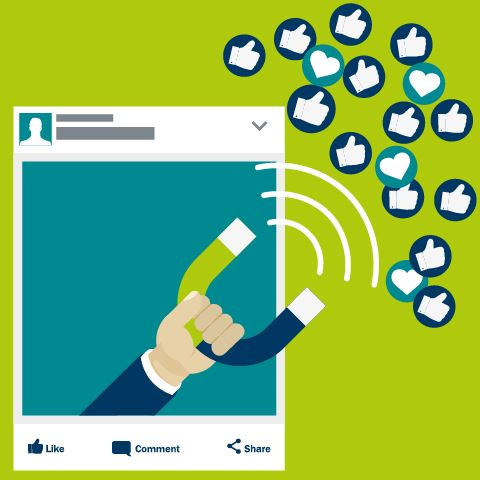
Navigating the rise of technology in construction
In this article we’ll dive into the booming world of smart construction technology, exploring the innovations driving the change and what the future looks like for the industry.

The influencer marketing industry has had a pretty tough time these last 12 months. Social media stars have come under attack for poolside pics in Dubai, prompting some to ask whether they even have a place in a post-pandemic world.
It certainly begs the question: if an influencer becomes an irrelevance that no one can or wants to emulate, what influence do they have? Those ignoring the realities facing people at the moment would do well to consider that, because when trust goes, influence vanishes.
But let’s be frank: we’re not B2C influencer marketing experts. We’re B2B communications specialists. And that’s great for us, because there’s never been a better time to invest in B2B influencer marketing. We’ve run multiple campaigns over many years for our clients and we very much believe in the value it can add to your B2B brand.
Which is why we’re saying: don't be put off! B2C influencer marketing is incredibly different to its lesser-known, but just as effective, B2B counterpart. So, let’s start by taking a look at some of the key differences.
Differing objectives
B2C influencer marketing is largely focused on product marketing and driving sales quickly, while B2B brands leverage influencers for everything from managing brand perception, thought leadership and consulting, to speaking at events and testing and launching products.
B2B influencer marketing can be a slow burn
While the Kardashians promote something one day and sell it out the next, this typically isn’t the case in the B2B world. And with good reason. B2C money-making endorsements can be ill-advised and uninformed. (Think Kylie Jenner and the epically doomed Fyre Festival, or Kim Kardashian’s weight loss lollipops.)
B2B influencer marketing tends to come from a place of greater authenticity. There are more people involved in the decision-making process and content has to filter through several channels before conversions happen. What’s more, the average purchase size in B2B typically dwarfs that in B2C, meaning purchase decisions are often more nuanced and comprehensive than consumer purchases. Therefore, impact naturally takes longer to nurture.
B2B influencer marketing channels are more diverse
While B2C influencer marketing generally happens exclusively on social media, B2B goes further.
B2B influencers may, for example, share their expertise through webinars, webchats or online tutorials. Their content can be shared by well-respected industry websites and trade press. Or they may be asked to speak at industry events.
Industry prominence matters
This is a big one. B2B influencer marketing works best when an influencer is well-known and revered for their work in an industry. Put simply: they’re industry experts, most often with the experience and credentials to back up what they’re saying.
In it for the long-haul
B2B influencer marketing is based around building long-term relationships – both between brand and influencer, and influencer and audience. This helps to create authenticity and trust. Conversely, consumer marketing can often be about quick results and getting customers to take action right away.
So, you’re confident that B2B influencer marketing is right for your brand and you’re ready to get going. Great! But first things first, the most important part: choosing the right influencer for your brand and its objectives. Here are seven things to consider:
1. Who’s going to resonate
Don’t reinvent the wheel. Understand who your audience is already listening to, reading, and watching, or whether there’s someone out there who’s already engaging with and publicly supporting your activity. Go from there.
2. Expertise
Trust, reach and engagement are the cornerstone of any great B2B brand, so collaborate with trusted industry experts with the respect and attention of your audience.
3. Followers aren’t everything
Popularity is important and a metric to consider, but it’s not everything. Ask yourself: is this person and their audience the right fit for my brand and its objectives? For example, some influencers are better for content at the top of the marketing funnel, while more niche expert influencers are suited to middle and end of funnel content.
4. Personality
B2B influencer marketing can seem a little dry when compared with its B2C counterpart, but that doesn’t mean the people are any less engaging. You don’t necessarily need a colourful character, but you do need them to show passion for their craft and use that passion to connect with your audience.
5. Content
Content is king, queen and everything in between. It’s what conveys the ideas of influence to your audience, so do your homework on the type and quality of your would-be influencer’s content.
6. Go beyond social strength
Social media reach can be used as a key measure of influence, but it’s by no means the only way to gauge a B2B influencer’s viability. Consider influencers who may be less visible on social, but are respected authors, speakers, thinkers, podcasters, and researchers.
7. Trust
Customers yearn for authentic content. B2B influencers can bring expertise and credibility to your brand content because they’re able to share their skills and what they’ve created with their network.
Once you’ve chosen your ideal influencer, you’re ready to embark on a successful journey together. But how? It’s no coincidence that 74 per cent of B2B marketers agree that influencer marketing improves customer experience with brands, yet only 19 per cent are running ongoing programmes.
B2B marketers aren’t following through on their confidence in how much influencers play a role in successfully building a brand. Why? Because it’s not easy to get right. Research suggests that B2B marketers are optimistic about influencer marketing but not confident about their ability to execute.
But don’t fret. We’re experts, we’re here to help, and the points below will help set you on the right path.
Educate them
Sure, they’re industry experts. That’s why you chose them. But that doesn’t make them experts on your products and your company. Educate your influencer about your company, its products, customers, competitors, and culture. This is imperative, but often overlooked.
Collaborate
You chose your influencer because they’re well-respected and they know your industry. Don’t diminish their authenticity by making them tow the party line word for word. The more freedom they’re given, the more impactful they’ll be.
Influencer marketing should be a collaborative process. Only 14 per cent of influencers who had no input into a brand’s brief deemed their campaigns to be “very successful.”
Listen
The crux of every good relationship is good listening. Listen to your influencer. Let them pitch you ideas. This often works so much better than your marketing team devising content and simply engaging an influencer to amplify it. Cooperation and co-creation fosters better outcomes for you, your influencer and your audience.
Do your research
It goes without saying, but the campaign you’re asking your influencer to participate in needs to be well researched and thought through. The better the research, the more interesting the brief, and the more interesting the brief, the more engaged your influencer is likely to be. It means you’ve taken the time to understand them, their expertise, their style of content and the ways in which they can be engaged. Tellingly, 70 per cent of influencers who think brands do lots of research consider their campaigns to be “very successful.”
Commercial agreements
This is an obvious but important point. You must have a contractual agreement in place which makes it clear what’s expected from each party. It should outline the time content is live for and give your brand the option to distance itself from the influencer if necessary. You never know what’s potentially around the corner – it’s important you mange any type of risk to business carefully.
Have fun
B2B influencer marketing doesn’t have to be boring. The best campaigns out there are underpinned by stand-out creativity. Remember, this is a form of content that is associated with your brand, but it isn’t coming directly from you. This allows you to push boundaries to a certain extent.
B2B influencer marketing isn’t new, but many companies, large and small, are still struggling with it. We get it, it’s tricky to get right. But the potential benefits are too great to ignore. Plus, the timing has never been better: influencer marketing is growing in popularity as marketers are faced with the challenge of engaging their target audience online, especially since the pandemic. To illustrate the point, 49 per cent of influencers have seen their work increase since Covid.
This increasing popularity is set to continue apace throughout the rest of 2021 and into 2022. But only brands that approach influencer marketing strategically and activate the right influencers to engage and be relevant to their audience will break through the noise and achieve the results they’re looking for.
The value of B2B influencer marketing has never been more prevalent. Don’t miss out – get collaborating.
Need help with your B2B influencer marketing? Contact Director, Sharon Smith: +44(0)1285 626000 / s.smith@clearb2b.com.



In this article we’ll dive into the booming world of smart construction technology, exploring the innovations driving the change and what the future looks like for the industry.

Learn how to use presentation opportunities as an effective lead-generation tool in your trade show activity.

Great marketing success comes from keeping your communications focused, engaging and simple to ‘get’ - but that isn’t always so simple to achieve.

With multiple types of technologies being considered, we bring you a snapshot of alternative fuels and review the most prominent pros and cons for each one.